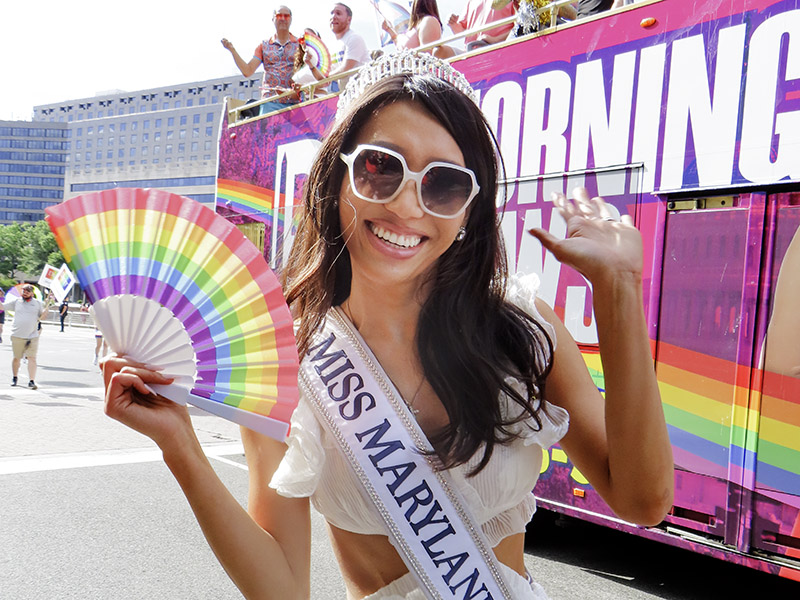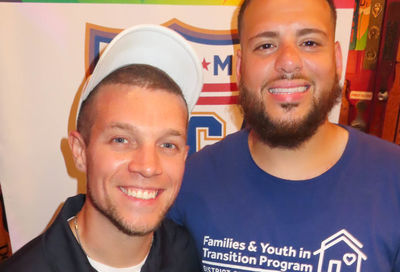Trump administration erases LGBTQ people from USAID’s gender policy
Critics say revised policy, eliminating references to LGBTQ people and contraceptives, is a "political document"

The Trump administration has released a new draft policy on gender and women’s empowerment for the U.S. Agency for International Development that eliminates any mention of LGBTQ people, particularly transgender women, as well as any mention of contraceptives.
The language of the proposed policy, which is intended to guide USAID’s grant-making and development work as it pertains to women’s issues, signifies a reversal in policy from the policy embraced by the Obama administration in 2012.
The updated policy states its goal as achieving “a prosperous and peaceful world in which women, girls, men, and boys enjoy equal economic, social, cultural, civil, and political rights and are equally empowered to secure better lives for themselves, their families, their communities, and their countries.”
In contrast, the 2012 policy is specific, saying the policy applies to people “regardless of age, sexual orientation, gender identity, disability status, religion, ethnicity, socioeconomic status, geographic area, migratory status, forced displacement or HIV/AIDS status.”
But it also removes previous mentions of LGBTQ people, as well as gender identity from the policy.
The Obama-era policy had mentioned gender identity eight times and LGBTQ people twice, according to ProPublica.
“It sends a message when an overarching umbrella policy that is supposed to inform all of USAID’s practices and initiatives is missing those factors,” Gayatri Patel, the director of gender advocacy at CARE, a humanitarian organization, said of the LGBTQ omissions.
According to ProPublica, the omission of LGBTQ mentions sparked an internal email exchange among USAID officials, with some noting their exclusion.
In response, Timothy Meisburger, USAID’s director of the Center of Excellence on Democracy, Human Rights, and Governance, wrote that while staff are free to comment on the policy, they should “keep in mind that the policies of the current Administration may differ from those of previous Administrations, and that it is our duty as civil servants to faithfully execute the policy of the current Administration.”
See also: Anti-trans activists to represent United States at U.N. Commission on the Status of Women
Some critics argue that understandings of gender — and everything it encompasses — has changed, and the new policy fails to take those understandings into account.
“The field has progressed in the eight years since 2012,” Susan Markham, USAID’s former senior coordinator for gender equality and women’s empowerment, told ProPublica.
“But this document does not do that. It is not based on technical advances or knowledge. It’s clearly a political document about the word gender.”
The proposed revision was originally slated to be released in late 2019, but was delayed multiple times, including, most recently, by the COVID-19 pandemic.
USAID officials have also been secretive about the revision, with little opportunity for advocates and gender experts to offer input until the final stages. The time period for public comment ends this week.
One official who was reportedly involved in the rewrite of the gender policy was Bethany Kozma, the USAID deputy chief of staff.
Prior to joining the Trump administration, Kozma railed against Obama-era guidance that urged schools to allow transgender students to use restrooms matching their gender identity, and even organized a campaign aimed at marshaling parents to oppose the Obama administration’s protections for transgender students.
The revised policy drops only weeks after USAID garnered negative headlines over past social media comments made by Merritt Corrigan, the agency’s former deputy White House liaison, who departed the agency earlier this month.
In her comments, Corrigan attacked homosexuality, same-sex marriage, transgenderism, and expressed opposition to the notion that U.S. policy should attempt to influence the social mores of other nations by tying the financial support they receive to those countries’ laws criminalizing homosexuality or their record on LGBTQ rights.
Read more:
Lesbian penguins celebrate birth of new chick after adopting an egg
Log Cabin Republicans ignore the facts and beg gays to back Trump
Two men arrested, one still at large, in attack on Eden the Doll and two other trans influencers
Support Metro Weekly’s Journalism
These are challenging times for news organizations. And yet it’s crucial we stay active and provide vital resources and information to both our local readers and the world. So won’t you please take a moment and consider supporting Metro Weekly with a membership? For as little as $5 a month, you can help ensure Metro Weekly magazine and MetroWeekly.com remain free, viable resources as we provide the best, most diverse, culturally-resonant LGBTQ coverage in both the D.C. region and around the world. Memberships come with exclusive perks and discounts, your own personal digital delivery of each week’s magazine (and an archive), access to our Member's Lounge when it launches this fall, and exclusive members-only items like Metro Weekly Membership Mugs and Tote Bags! Check out all our membership levels here and please join us today!

























You must be logged in to post a comment.